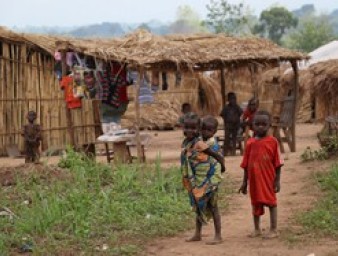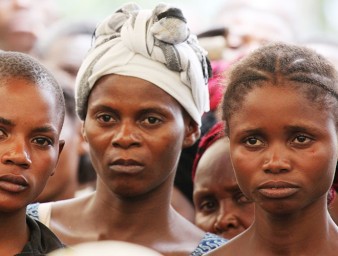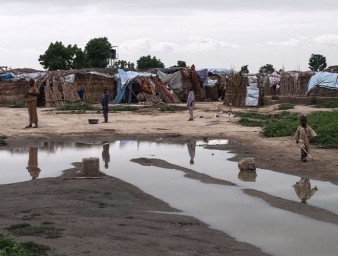Strategic litigation can be a force for gender justice
25 June 2021

A group of lawyers, academics, legal practitioners and activists across Latin America have united, under the belief that court cases, when used strategically, can bring justice, reparations and healing to the numerous survivors of sexual and gender-based violence.
The Latin American Network for Gender-based Strategic Ligitation (Red Latinoamericana de Litigio Estratégico en Género, ReLeG in Spanish) formed as a way to both advocate and strengthen accountability efforts for gender-based crimes in Latin America, and provide a way for advocates to disseminate and exchange best practices for litigation across the region, said Susana SáCouto, one of the group’s organizers.
“We saw that many of the organizations and victims’ advocates were working in isolation, unaware of the other similar cases being litigated in the region or jurisprudential advances and strategies that led to the success in some of those cases,” she said.
SáCouto, who runs the War Crimes Research Office at American University Washington College of Law (AUWCL), along with Claudia Martin (co-director of the Academy for Human Rights and Humanitarian Law at AUWCL), Daniela Kravetz (attorney specializing in international criminal justice and gender-based violence) and Dalila Seoane (criminal lawyer, investigator and sexual and gender-based violence advocate in Latin America ) founded ReLeG during a conference of victims’ advocates.
“Strong peer networks are indispensable to sharing lessons learned,” said Seoane. “It is generally not a single intervention, but an advocacy process, that contributes to positive change. We hope this network will serve to support network participants in these initiatives.”
From a workshop on best practices to a coalition
It started out with an initial workshop in Bellagio in 2017, with advocates exchanging information, best practices and common challenges on cases or projects they were working on. With the assistance of UN Human Rights, the group became more formalized. The office sponsored a roundtable discussion on the issues of strategic litigation of gender-based violence in Latin America, a report of which has laid a foundation for the advocacy work of the group.
“ReLeG represents a platform which can greatly contribute to activating a diversity of experiences and backgrounds to disseminate good practices and academic research, and exchange expertise in specific gender-based violence cases and, more broadly, to finding creative solutions to advance gender justice and gender equality,” said Georgina Mendoza, Human Rights Officer, Women Human Rights and Gender Section. “For UN Human Rights, it is important to support these type of collective efforts, aimed at societal transformation.”
Strategic litigation means structural change
“Strategic litigation includes the process brought before judicial and quasi-judicial bodies that aim to have a lasting impact beyond repairing the harm suffered by victims,” Kravetz said.
One of the best examples of this was Guatemala’s ground-breaking Sepur Zarco court case in 2016. The case looked at conflict-related sexual violence against indigenous women during the country’s civil conflict. The outcome of the trial was not just the conviction of former military members, but also transformative reparations that included monetary compensation, restitution, and rehabilitation. The reparations aimed at strengthening access to health and education in the communities where the litigants belonged, as well as the development of cultural projects for the women of Sepur Zarco and the translation of the judgement into the 24 Mayan languages.
“Ultimately, strategic litigation initiatives are designed to reinforce a state’s human rights obligations and strengthen the institutions responsible for protecting those rights,” Seoane said.
A network of judicial advocacy for all survivors
The focus on sexual and gender-based violence for strategic litigation in Latin America is an attempt to wrest impunity for these crimes from the perpetrators, said Claudia Martin. There is a widespread impunity for gender-based crimes, particularly those that are committed during periods of conflict and mass repression, she said. This sends a message to the community that this type of violence is acceptable, and perpetuates this violence in different forms today, she added.
“We expect this platform will facilitate our work as a coalition, increasing our capacity to break the existing patterns of impunity regarding sexual and gender-based violence,” Martin said. “We are convinced that making accountable those who in the past perpetrated sexual and gender-based violence in conflict or situation of political repression is a necessary step to address the new forms of gendered violence. Present-day violence reproduces historical patterns of discrimination and is committed not only by States but also by private actors.”
SáCouto added that breaking the patterns will lead eventually to better gender-based policies, by “monitoring, documenting and promoting strategic gender-based litigation initiatives, contributing to gender-sensitive and intersectional legal education and helping devise public policies and legislative reforms aimed at gender equality and access to justice.”
25 June 2021




